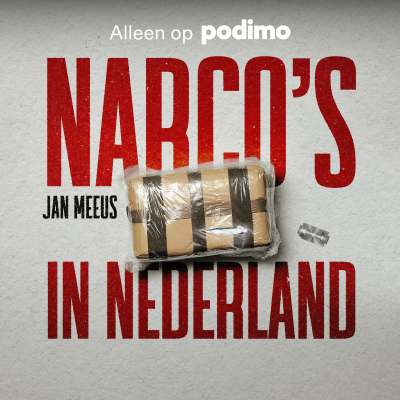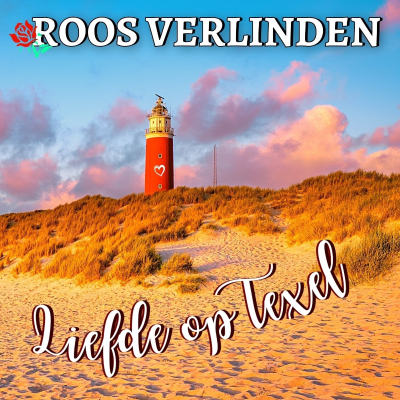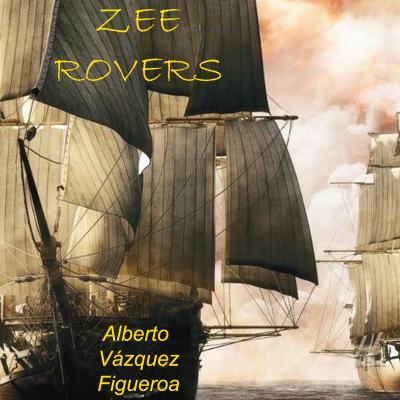
Weird Species
Engels
Technologie en Wetenschap
Tijdelijke aanbieding
2 maanden voor € 1
Daarna € 9,99 / maandElk moment opzegbaar.
- 20 uur luisterboeken / maand
- Podcasts die je alleen op Podimo hoort
- Gratis podcasts
Over Weird Species
Welcome to "Weird Species," an original podcast by the Senckenberg Society for Nature Research. Join Prof. Dr. Julia Sigwart as she guides you through the fascinating world of the species on our planet. Whether you prefer them super cute or pretty icky, whether you can find them in your neighborhood or only on a remote island, we've got you covered. Each episode features conversations with scientists from various fields, where Julia quizzes them on their favorite species. Imprint: Copyright: Senckenberg Gesellschaft für Naturforschung Concept: Adrian Giacomelli, Julia Sigwart, Sabine Wilke Editor: Adrian Giacomelli Ed. assistant: Benjamin Wimmer Moderation: Julia Sigwart Production: Senckenberg Gesellschaft für Naturforschung
Alle afleveringen
9 afleveringenWeird Species #8: Heloderma suspectum – A pretty chill monster
Krister Smith is Head of Division Messel Research and Mammalogy. In this episode of “Weird Species“, he talks about the UNESCO World Heritage Site just south of Frankfurt and its many well-preserved fossils. His favorite species lives quite far away, though: The Gila monster, a venomous lizard native to the Southwestern US and the Mexican State of Sonora. They are remarkably relaxed creatures, only active for 20 hours per month – but with a bite that has been described as excruciatingly painful. Learn more about our section Messel Research [https://www.senckenberg.de/en/institutes/senckenberg-research-institute-natural-history-museum-frankfurt/division-messel-research-mammalogy/section-messel-research/]. Follow Senckenberg on Facebook [https://de-de.facebook.com/SenckenbergWorld] Instagram [https://www.instagram.com/senckenbergworld/] TikTok [https://vm.tiktok.com/ZSVyFhy8/] LinkedIn [https://www.linkedin.com/company/senckenberg/] YouTube [https://www.youtube.com/user/senckenbergfrankfurt]
Weird Species #7: Sperm whales - Moby Dick's dark-skinned cousins
Enric Sala used to be a professor of marine biology at the Scripps Institution of Oceanography in San Diego, California. Then he realized that he was "writing the obituary of the ocean", quit academia and started putting all of his efforts into conservation. In this episode of "Weird Species", he tells us all about it: partnering with National Geographic to tell captivating stories about ocean life and helping governments and communities all over the world to set up marine protected areas. But of course he also talks about his favorite animal, the sperm whale, and what it's like to see them up close. Enric Sala was awarded the Senckenberg Prize for Commitment to Nature 2024 [https://museumfrankfurt.senckenberg.de/de/pressemeldungen/outstanding-look-into-the-depths-2024-senckenberg-prizes-go-to-marine-researchers/]. Watch Enric Sala's TED talk [https://www.youtube.com/watch?v=9IPHZ2rN-Hs] about "turning the high seas into the world's largest nature reserve". Check out Enric Sala's book "The Nature of Nature" [https://www.enricsala.com/the-nature-of-nature]. Follow Senckenberg on Facebook [https://de-de.facebook.com/SenckenbergWorld] Instagram [https://www.instagram.com/senckenbergworld/] TikTok [https://vm.tiktok.com/ZSVyFhy8/] LinkedIn [https://www.linkedin.com/company/senckenberg/] YouTube [https://www.youtube.com/user/senckenbergfrankfurt]
Weird Species #6: Dorado Octopus - Deep Sea Super Powers
In this episode of „Weird Species“, our guest is Dr. Janet Voight, renowned marine biologist and curator emerita of the Field Museum in Chicago. Earlier this year, she visited Frankfurt to assist with our new project „Secret Service“, which aims to highlight the often-forgotten contributions of women in science throughout Senckenberg’s history. But then of course we also talk species - in Janet’s case, the newly discovered so-called „dorado octopus“, a truly fascinating creature. Follow Senckenberg on Facebook [https://de-de.facebook.com/SenckenbergWorld] Instagram [https://www.instagram.com/senckenbergworld/] TikTok [https://vm.tiktok.com/ZSVyFhy8/] LinkedIn [https://www.linkedin.com/company/senckenberg/] YouTube [https://www.youtube.com/user/senckenbergfrankfurt]
Weird Species #5: Deep sea brains – Xenophyophores
They kind of look like brains and live on the floor of our oceans in depths up to 10,000 meters: xenophyophores. Here to talk about them in this episode of "Weird Species" is world-renowned deep sea biologist Dr. Lisa Levin, this year's recipient of the Senckenberg Prize for Nature Research. She not only shares facinating insights about xenophyophores, but also about her long and distinguished career that took her all over the globe. Follow Senckenberg on Facebook [https://de-de.facebook.com/SenckenbergWorld] Instagram [https://www.instagram.com/senckenbergworld/] TikTok [https://vm.tiktok.com/ZSVyFhy8/] LinkedIn [https://www.linkedin.com/company/senckenberg/] YouTube [https://www.youtube.com/user/senckenbergfrankfurt]
Weird Species #4: Choloepus didactylus – Sloth Wisdom
For this episode of "Weird Species", we slow things down a bit: Dr. Irina Ruf, head of the mammalogy section at Senckenberg, talks about her favorite species, the two-toed sloth. A creature as laid-back as it is fascinating, it spends its days hanging from trees in the rainforests of South America and clambers down once per week to relieve itself. So what does researching an animal that barely does anything look like? And what can we perhaps learn from these very relaxed animals? Follow Senckenberg on Facebook [https://de-de.facebook.com/SenckenbergWorld] Instagram [https://www.instagram.com/senckenbergworld/] TikTok [https://vm.tiktok.com/ZSVyFhy8/] YouTube [https://www.youtube.com/user/senckenbergfrankfurt]
Kies je abonnement
Tijdelijke aanbieding
Premium
20 uur aan luisterboeken
Podcasts die je alleen op Podimo hoort
Gratis podcasts
Elk moment opzegbaar
2 maanden voor € 1
Daarna € 9,99 / maand
Premium Plus
Onbeperkt luisterboeken
Podcasts die je alleen op Podimo hoort
Gratis podcasts
Elk moment opzegbaar
Probeer 30 dagen gratis
Daarna € 11,99 / maand
2 maanden voor € 1. Daarna € 9,99 / maand. Elk moment opzegbaar.































